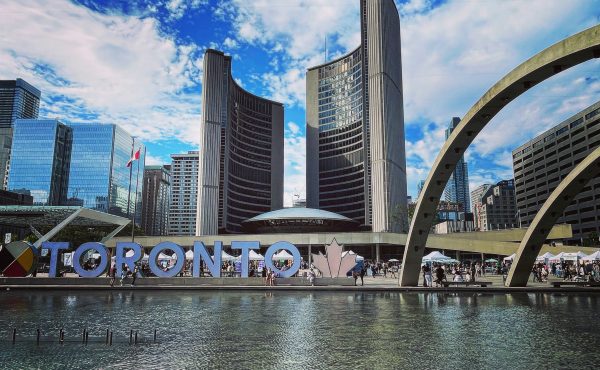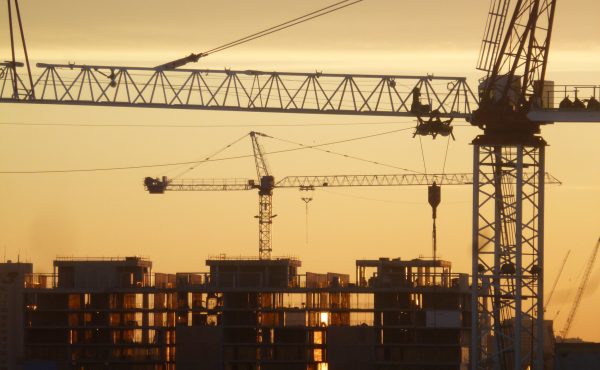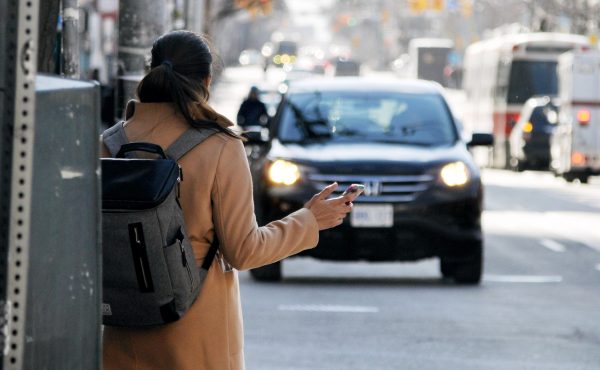The last of the “big four” revenue tools for transit funding identified in the CivicAction report is a regional sales tax. In the increasing number of referendums being held in American cities to fund transit projects (e.g. Los Angeles), sales taxes dedicated to transit funding are perhaps the most common, and overall the most successful (though not always).
The dedicated sales tax idea has also found favour with some conservative politicians in Toronto, such as councillor Norm Kelly.
In Ontario, a sales tax would in fact be a goods and services tax, added on top of the current Harmonized Sales Tax (HST).
Amount charged
The CivicAction report (PDF) estimates that a 1% tax added in addition to the HST across the GTHA would raise $1 billion a year.
A City of Toronto staff report released yesterday estimates that it would raise $1.3 billion. (This report estimates somewhat different numbers for the other revenue mechanisms discussed in this series, too. Check out the full report (PDF) for a comparision of the alternatives similar to this series).
An advantage with a sales tax is that it will rise automatically with inflation, whereas the other big three proposals are fixed amounts. Unless the use of whatever is being taxed (parking, highway driving, gas) increases (which is not particularly desired), their real value could gradually decrease with inflation.
Cost to implement
Rating: good
The infrastructure to collect a regional sales tax is already in place. The province would collect the money the normal way and redistribute the funds from the extra tax to Metrolinx.
Businesses have already adjusted their sales taxes recently (when the HST was implemented, when the GST was reduced) so the adjustment is nothing new.
Some issues would also have to be resolved regarding on-line purchases, but presumably solutions have been found in the various US cities that have municipal sales taxes.
Behaviour incentives
Rating: poor
A regional sales tax would have no effect on reducing driving, in and of itself.
Businesses within the GTHA would be afraid that consumers would drive outside the region to save the tax. However, since the tax covers the entire region, such drives would be inconvenient for most people. As long as the additional sales tax is not very high, the savings in most cases would be marginal. This behaviour would most likely affect high-priced purchases such as cars.
Political viability
Rating: good
Various US examples have shown that tax-averse publics are willing to support a sales tax dedicated to building transit infrastructure, if it has strong institutional support, a good plan, and a good campaign. In many of these cases, business organizations that one might have expected to be reluctant to tax consumption have been strongly supportive of these measures.
The fact that conservative members of Toronto’s council have also voiced support for the idea also suggests the potential for a broad range of support.
The GTHA-wide nature of the tax removes one of the primary objections of politicians and businesses, that it will encourage consumers to shop elsewhere.
The diffuse nature of the sales tax also means that no single group is hit especially hard, which reduces focused opposition and which may also strike voters as more fair.
One objection may be that a sales tax will affect the poor the most, as they spend the largest percentage of their income on consumption. Currently the HST is compensated for by direct rebates to households with low incomes. It’s not clear whether these would be adjusted to compensate for the extra tax. However, given that the provincial government will be collecting the tax, it is an issue that should be solvable.
The various US cities where sales-tax-for-transit referenda have failed are a reminder that raising any tax is a challenge, and that any proposal will still need a strong campaign behind it.
What do our readers think of the regional sales tax option? What are other issues, positive and negative, with this option?
Tomorrow: should transit riders contribute?





